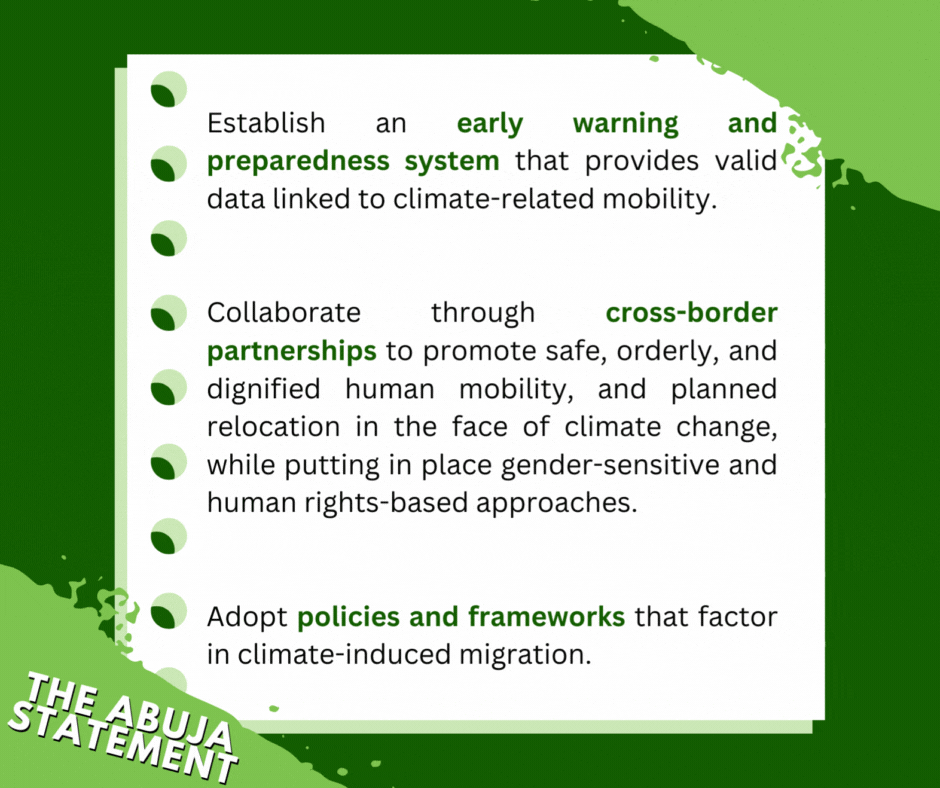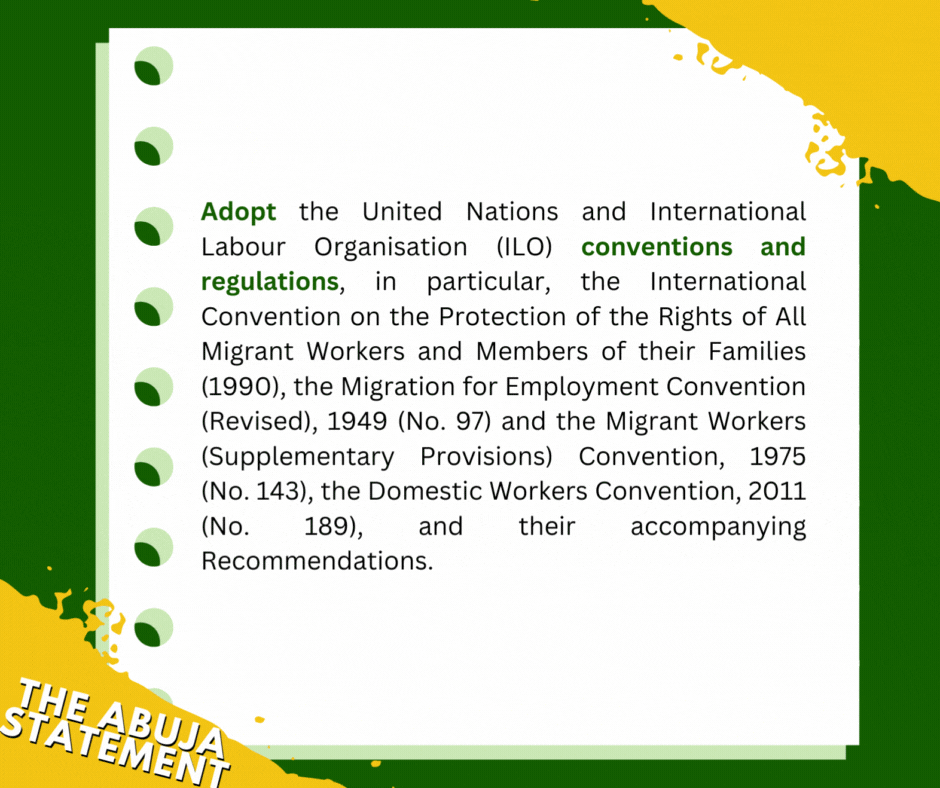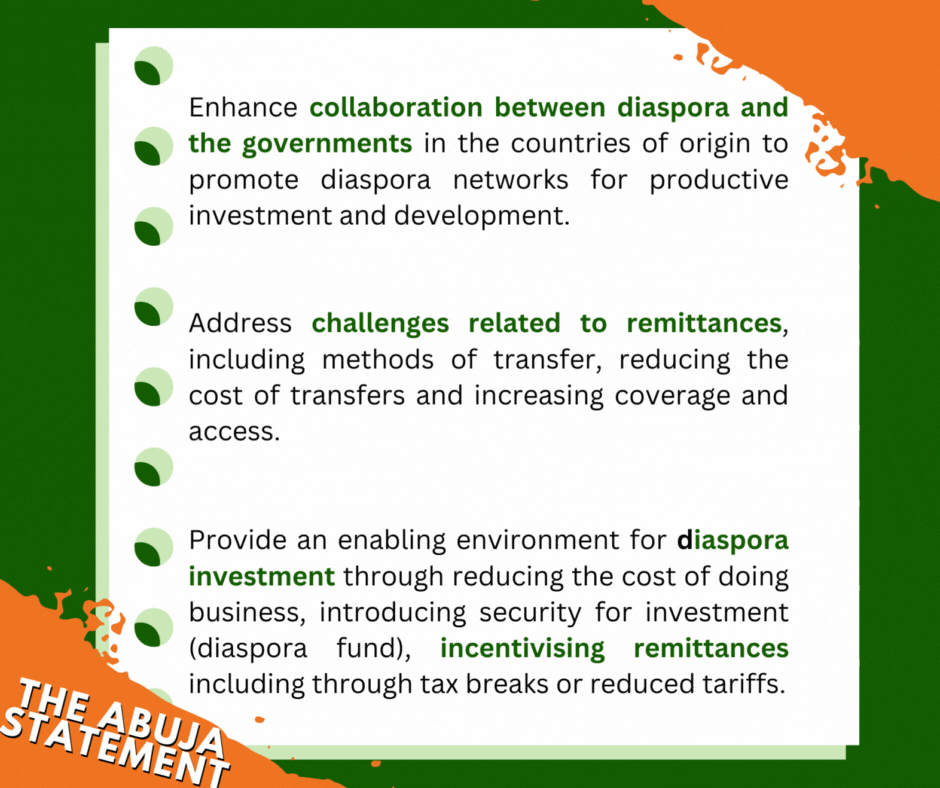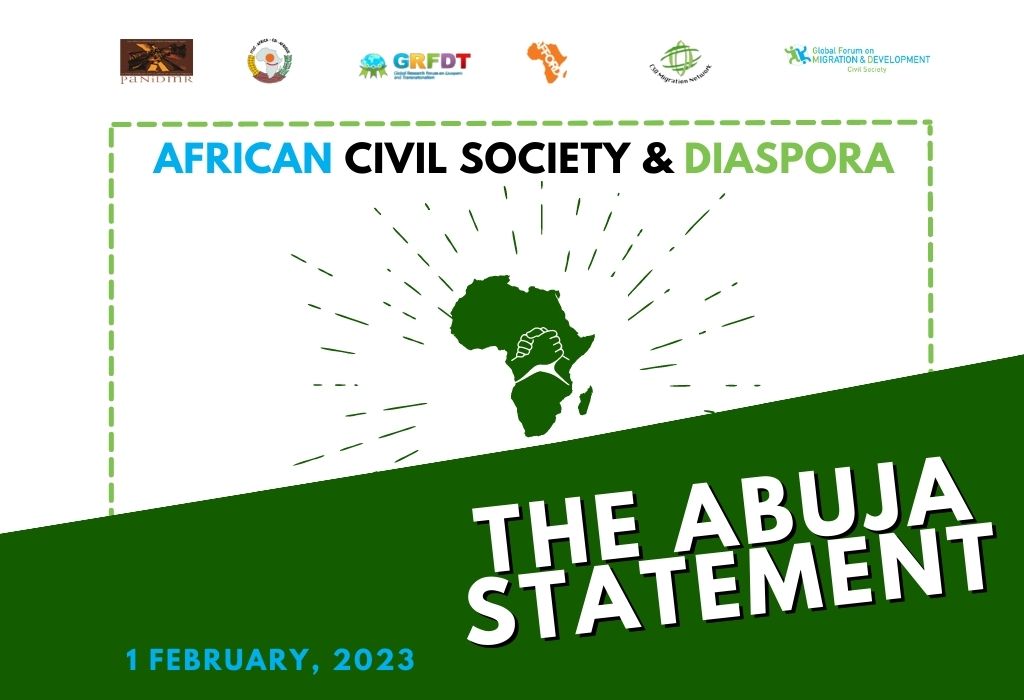The Abuja Statement is a joint advocacy statement, a result of collaborative efforts between all African civil society and diaspora participants of the Abuja Forum which identifies the current challenges Africa and its diaspora are facing and calls for prompt action from governments. Read on to discover the priorities of African civil society and diaspora.
From 30 January to 1 February 2023, the Abuja Civil Society Forum took place in Abuja, Nigeria, and was co-organised by African civil society and diaspora. The Forum aimed to build capacity and strengthen African engagement in global migration processes and frameworks. The Forum was also dedicated to the launch of the 2023 Global Forum on Migration and Development (GFMD) civil society process, which will lead up to the 14th GFMD Summit in Geneva next year.
The Abuja Statement was the result of these discussions held between African civil society and diaspora at the Forum: a forward-looking and action-orientated statement, providing recommendations on three GFMD priority areas: climate change, labour migration and the diaspora. Going beyond the GFMD thematic priorities, it also encompasses a fourth section on important aspects hindering the effective engagement of African civil society in migration processes such as issues of ‘limited financial support and shrinking space for engagement from the international community’.
Some of the crucial elements that emerged from the Statement are a strong recognition of civil society’s agency, as well as the protracted lack of human rights protection for migrants and their families. In fact, already in the opening of the Statement, there is an emphasis on the agency of African civil society in leading and contributing to global and continental migration processes: ‘We acknowledge the importance of creating and sustaining the space for civil society organisations as independent actors and integral partners within the GFMD. We equally acknowledge the role of civil society organisations, and particularly African and diaspora civil society organisations in contributing to the Global Compact on Migration (GCM) process.’
In addition, the Statement acknowledges the progress made by policy frameworks at the regional and continental level, the progress on the implementation of the GCM, the International Migration Review Forum (IMRF) and the upcoming Regional Migration Review Forum (RMRF) for Africa. However, attention is also called on to the setbacks and the ‘non-compliance of states with international human rights, in general, and specific to migration instruments and frameworks’.
Key excerpts from the Abuja Statement on 2023 GFMD thematic priorities
The Abuja Statement identifies key inputs and recommendations on three of the 2023 GFMD thematic priorities. It also provides the starting point for civil society to build its process for the GFMD all the way to its summit in Geneva next year:
On Climate Change
In view of the devastating effects of climate-related disasters and the consequent climate-induced mobility in Africa, recommendations revolve around early warning preparedness, cross-border preparedness, the integration of frontline communities in decision-making, knowledge exchange among affected communities, the prioritisation of the funding of the loss and damage fund and the promotion of adaptation measures.
‘Prioritise immediate funding of the loss and damage fund, with a focus on people affected by climate-related disasters, while eliminating the bureaucratic processes and barriers to access the funds and ensuring fair and equitable distribution.’

On Labour Migration
Considering the criminalisation of the mobility of migrant workers within Africa and outside and the exclusion of migrants in the informal sector, recommendations highlight the following: adoption of ILO conventions and regulations, promotion of fair and equitable recruitment, expansion of schemes to ensure the mobility of migrants, establishment of visa pathways, recognition of skills, creation of legal avenues to access social welfare systems, adoption of labour mobility agreements and an overall inclusive approach to labour migration.

‘Conclude labour mobility agreements (e.g. bilateral labour agreements, global skills partnerships) that include specific provisions to ensure the protection of the rights of migrant workers and guarantee their fundamental rights at work, including wage protection systems, legal complaint and mediation mechanisms through diplomatic missions of countries of origin. This process should include consultation of social partners, including trade unions and CSOs.’
On the Diaspora
Diaspora members are essential development actors, creating a valuable socio–economic and cultural connection between countries of origin and residence. Therefore, recommendations call upon states to enhance collaboration between diaspora and governments, address challenges related to remittances, incentivise diaspora investment, provide access to civil and political rights in countries of origin, amplify the cultural capital of diaspora, promote diaspora skills transfer and upskilling, advance generational links as well as recognise the contributions of second and subsequent generations of diasporas.
‘We acknowledge that the diaspora amplifies the concerns of migrants, their families and communities of origin. We underscore the journey of the migrant, and the multi-generational power of its diaspora, strongly acknowledging that while all migrants are diaspora, not all diaspora are migrants – this needs to be integrated into every aspect of migration and development.’


